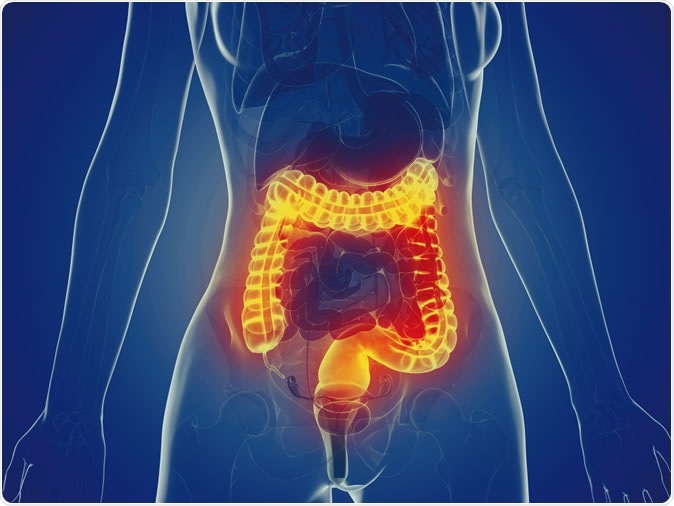
Image Credit: Sebastian Kaulitzki / Shutterstock
IBD
There are over 7,000 children with IBD in the Canadian nation. IBD is a condition of the gut that is thought to be produced by an autoimmune reaction. When the immune system of the body “recognizes” a gut antigen as a foreign one, it instantly sets its forces into action, causing inflammation. This is the normal response of the body to injury and to sickness. However, the issue in IBD, including Crohn’s disease and colitis, is that it can result in serious damage to healthy gut tissue.
IBD causes these kids to groan with continuing abdominal pain, cramps, vomiting and diarrhea. In turn, the loss of nutrients and the reluctance to eat can precipitate malnutrition, loss of weight and low energy levels. As a result, children miss school and cannot engage in sports or other hobbies they may be interested in. More and more cases of IBD, especially CD and ulcerative colitis, are being diagnosed and in kids less than 10 years, the rates of these conditions have doubled.
IBD is typically treated using antibodies to block the inflammatory cascade. About 1 in 3 patients fail to respond, however, and many others respond at first but later experience relapses and flare ups of the disease.
Tr1 cells
T regulatory (Treg) cells are important in maintaining immune responses at a helpful but not harmful level, preventing hyperactivation and keeping the body systems running normally. There are two subsets of these, the type 1 Treg cells or Tr1, and the FOXP3 positive Treg cells. Tr1 cells secrete the cytokine IL-10 which is anti-inflammatory in action. This suggests its use in repairing bowel damage due to IBD.
What they did
The researchers built up 3-dimensional colon organoids to examine the kind of interaction that occurs between Tr1 cells and other gut epithelial cells. Calling these structures self-organized mini-guts, the researchers examined them for cell-specific signals. They came across an unexpected finding. In mice, Tr1 cells were shown to modulate the activity of inflammasomes by secreting IL 10.
Tr1 cells stimulate the mini-gut to promote the differentiation of more goblet cells, so that they can secrete more mucus so as to protect the cells from damage by improving the intestinal barrier function. They also realized that only Tr1 cells and not other Treg cells can promote a better gut microenvironment.
This study demonstrated for the first time that when Tr1 cells are taken from parents and cultured, those from IBD patients are also just as much anti-inflammatory in their activity as those from healthy people. They prevent the proliferation of effector T cells that mediate the specific adaptive immune response, which damages gut mucosa. They also suppress the innate immune cytokines IL 1B and TNF. Instead, their mucus-enhancing function is because they secrete IL 22.
Explains researcher Ted Steiner, “Kids with IBD develop abnormal immune responses to normal gut bacteria. Training our immune system to fight off infections and bad gut bacteria while maintaining normal relationships with the good bacteria is critical for the health of children with these diseases.”
Implications
The scientists don’t know why people with IBD still develop the disease if their Tr1 cells are working normally. One possibility is that there are too few cells to prevent the inflammatory reaction. The researchers hope to take out this cell type, which can be then encouraged to multiply. This could be the basis for personalized treatment of this condition and consequent control of CD or ulcerative colitis.
The researchers will then try to establish the ideal environment for laboratory culture of these cells. They could then inoculate such cells into children with IBD, so that the new Tr1 cells will have the best shot at repairing the inflamed and damaged gut. Later on, they hope, it will be possible to extract Tr1 cells from each patient and grow them in the laboratory, before giving them back to the same host – a novel cell-based treatment for IBD in children.
Journal reference:
Suppressive and Gut-Reparative Functions of Human Type 1 T Regulatory Cells Cook, Laura et al. Gastroenterology, Volume 157, Issue 6, 1584 - 1598, https://www.gastrojournal.org/article/S0016-5085(19)41310-3/fulltext